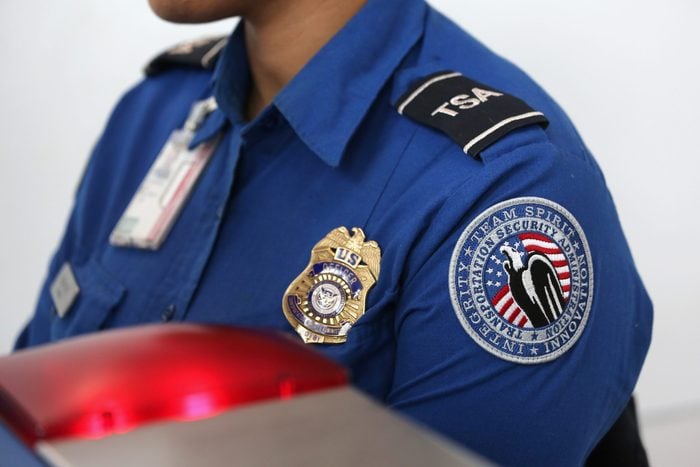
Navigating airport security check
First impressions are really important, and that’s especially true for the millions of air travelers navigating U.S. airports every day. Savvy voyagers know how important it is to follow safety rules and protocols so that going through airport security check is an easy, stress-free experience. The last thing they want is for a Transportation Security Administration agent to remove them from the line for a pat-down and search of their carry-on bags.
While such an experience may be embarrassing, keep in mind that the TSA agent isn’t trying to make your life miserable. “They are just doing their jobs, and they are on your side,” says Mike Boyd, president and CEO of Boyd Group International, an airport security consultancy in Evergreen, Colorado. “They just want to ensure the airport and airlines are safe.”
These security pros do more than just operate the body scanner. They’re trained to detect any item on a person or in carry-on luggage that poses a threat. According to the TSA, agents screen approximately 4.9 million carry-on bags for explosives and other dangerous items each day. The key is to be prepared. Make sure you know TSA carry-on rules (like what the TSA liquid limit is and which items belong in your checked luggage), whether you can bring food on a plane and how to use Global Entry or TSA PreCheck to sail through security lines.
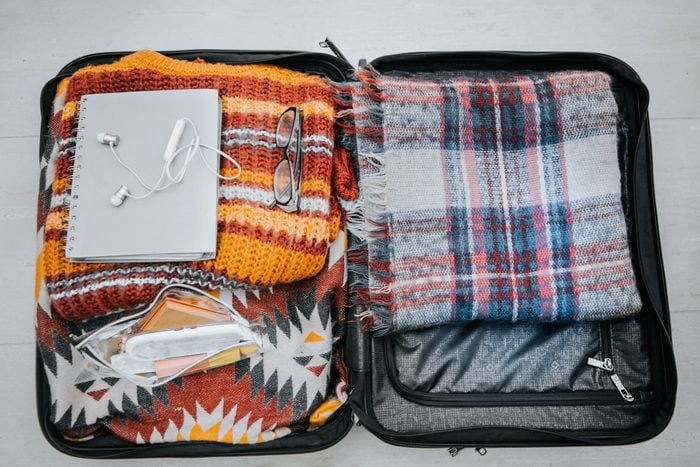
What do they check at airport security?
The TSA puts out a travel checklist with clear instructions for how to pack your carry-on and checked luggage to avoid issues with security at airports. Be sure to review the special instructions for items like firearms, flammables and medical equipment. TSA agents will check those as well as any liquids you’ve packed. You can pack a quart-size bag of liquids, aerosols, gels and creams in your carry-on, as long as each is no more than 3.4 ounces.
The airport security check also screens electronics. They’re among the items permitted through security, but the TSA will ask you to remove these personal items from your carry-on bag and place them into a separate bin for X-ray screening when you go through the checkpoint.
What does the TSA check for when they scan your ID?
When TSA agents ask to scan or check your ID, they want to verify your identity before you enter the security checkpoint. That’s why it’s so important to have an up-to-date license or passport. An agent will review your name, photo, address and date of birth, then cross-check to see that the information on your travel documents matches your ID.
Keep in mind that the Real ID Act is now in effect, and it aims to deter terrorists’ ability to use fake or fraudulently obtained IDs. Under the law, you need to use a state-issued ID that is Real ID compliant. You can get one through your state department of motor vehicles. Otherwise, you can present a U.S. passport, U.S. passport card or U.S. military ID.
What triggers a TSA bag check?
Sometimes the most innocent items can spark a bag search at the airport security check—anything from lip balm and batteries to spreadable liquids like peanut butter. When an X-ray detects something in your luggage that may be suspicious, an agent needs to ferret through your bag by hand to determine what it is and whether it’s really a danger. The good news is that the TSA is rolling out an array of high-tech screening tools—think rotating 3D imagery and ID authentication—aimed at expediting the security check process.
To boost the odds you won’t set off alarm bells next time you go through airport security check, we spoke to travel experts, former TSA agents and airport security consultants to find out what actions can trigger a closer inspection.
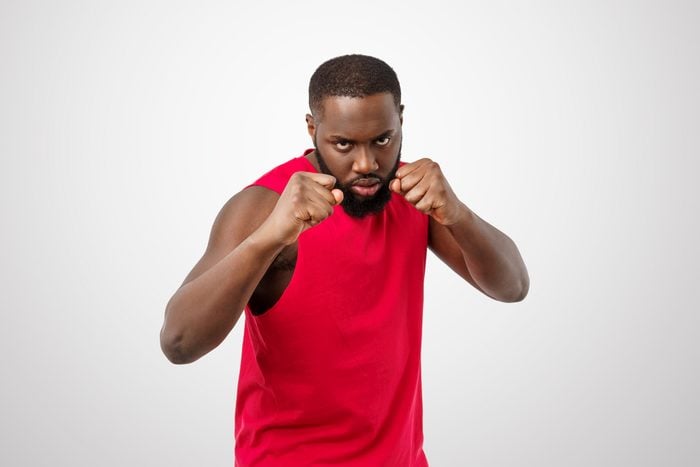
Acting aggressive
The last thing you want to do is draw attention to yourself at the airport by being belligerent, angry or downright nasty. “It sends up a red flag, and TSA agents begin to wonder what the issue is,” says Jeffrey Price, a former assistant security director for the Denver Airport who is now a security trainer for the American Association of Airport Executives and a professor of airport management at the Metropolitan State University of Denver. “If your flight has been delayed or canceled, don’t let that put you in a tailspin.”
As he explains, TSA screeners primarily look for behaviors that are inconsistent with typical passenger commuters. So do your best to stay calm, cool and collected—even when you’re frustrated by airport issues.

Being overly talkative
Feeling chatty and want to break the ice with TSA officers? Resist the urge to charm them with all the airplane facts you know. Making small talk with TSA employees isn’t always a good idea, says Price. “Many criminals try to avert the attention of security agents using this approach,” he says. “So being overly talkative may be a red flag.”
That said, Boyd advises travelers to “be courteous and polite. Smile, and say ‘thank you.'” After all, having the right attitude can make all the difference.

Acting nervous
You may be nervous because you have a fear of flying. Or you may be nervous for another, not-so-innocent reason. The TSA has been trained to be on the lookout for nervous passengers—those who clear their throats often and those who appear shaky, pale or wide-eyed. Anything that makes you look agitated could attract the attention of a TSA agent. Nervous flyers may want to find ways to calm themselves (such as by meditating or visualizing a calm, safe experience) before hitting the airport security check.
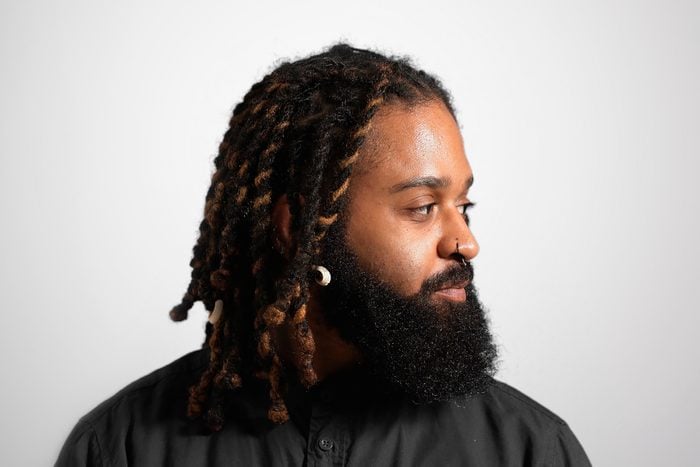
Avoiding eye contact
Perhaps you have other things on your mind—like all that traveling you’re about to do. Or maybe you’re just an introvert and don’t particularly like interacting with strangers. But to a TSA agent, your avoidance of eye contact could signify something else entirely, says former TSA agent Richard Rozins. “The eyes are the first place a TSA agent looks,” he says.
If you’re unable to look TSA agents in the eye when they are asking you a question, it may seem like you are avoiding or hiding something, adds Price.

Wearing baggy clothing
Baggy clothes are comfortable, and frequent flyers know that comfort is king when it comes to determining what to wear on an airplane. But loose duds may prompt an extra screening as you move through airport security. While they’re not prohibited, baggy clothes may make TSA agents wary because they can’t tell what you might be hiding underneath. They may even need to pat you down.
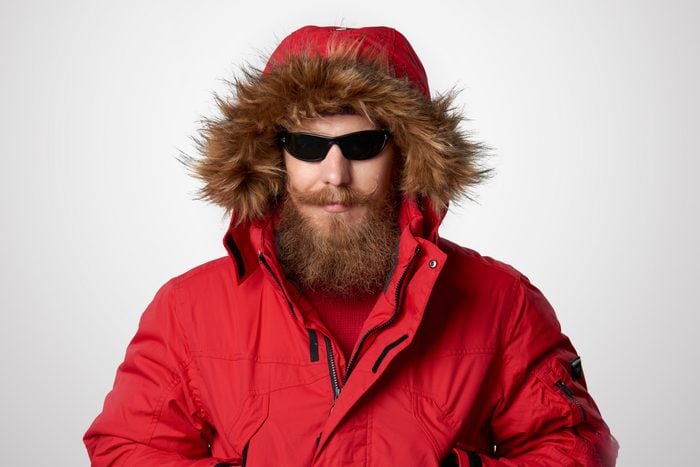
Wearing unseasonable outfits
“If you are wearing a ski jacket in the middle of July, that may seem really odd to a TSA officer,” says Boyd. The screening pro who is on the lookout for criminals may wonder if you’re hiding something. Is the parka you’re wearing in 90-degree heat concealing a weapon? It’s the sort of question a TSA agent may ask when scanning the airport security check line. Yes, you’ll be removing your jacket and going through the body scanner, but you may have pinged the TSA radar by then. As a result, TSA agents may decide to do a bag search or even pat you down after you go through the body scanner.
If it’s a matter of necessity—where else are you going to put your jacket?—it may be time to invest in some affordable luggage that you can pack with extras and check before heading to security.
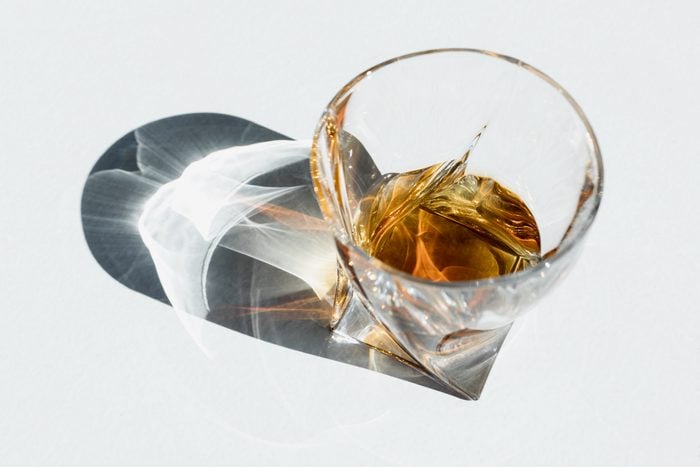
Drinking before your flight
The Federal Aviation Administration (FAA) and airport security have zero tolerance for unruly passenger behavior—and that includes drunkenness. Since the COVID-19 pandemic began, incidents of abuse by travelers at airports and on flights have risen dramatically. According to the FAA, there have been more than 7,000 reports of unruly passengers since the start of 2021. In response, lawmakers in the House of Representatives have filed a bill known as the Unruly Passenger Restraint Review Act to ban passengers who act out on flights.
If a TSA agent senses that you’re intoxicated, you could be deemed a person of interest. He or she may ask the police to do a blood alcohol test. And you may be denied boarding by the gate agent. If you do make it onto the plane, intoxication is one of the first things a flight attendant will notice about you.
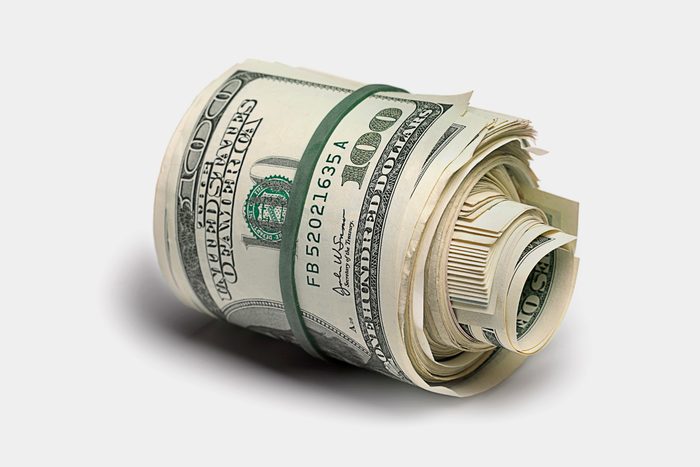
Carrying lots of cash
Globetrotters who carry a lot of cash—including a wad of foreign currencies and coins—may be surprised to know they can get flagged by a TSA agent. It’s happened many times to Sahara Rose De Vore, a wellness travel coach and consultant who has visited more than 80 countries. “I’ve been asked at many airport security checkpoints to explain why I have multiple currencies,” she says. “They are worried about sex trafficking, and this is something they often want to ask you about.”
According to De Vore, TSA agents may ask why you traveled to various places and whom you work for. Her advice: Convert the money back to U.S. dollars, or your native currency, at the end of your trip.

Traveling with coffee
You may think a bag of coffee beans is a great travel gift or souvenir, but drug smugglers use coffee to hide the scent of drugs from canine dogs. Because it’s a common tactic used by criminals, it’s a red flag for TSA officers, says Price. If they see coffee beans in your carry-on luggage, they may question you or search your bag by hand. The TSA doesn’t prohibit coffee beans or ground coffee from either carry-on or checked bags, but you may want to buy it in the duty-free shop to avoid any hiccups.
If you’re set on bringing home coffee from your destination, separate the item when going through the security check. You want to make sure it doesn’t obscure the image on the X-ray machine.
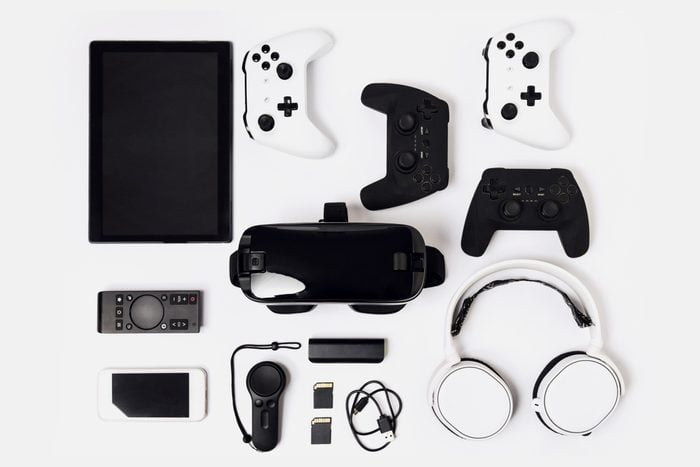
Traveling with electronics and electrical equipment
The TSA requires that all electronics bigger than a cellphone, such as laptops and tablets, be placed in bins and X-rayed separately. Most travelers are aware of that. But many don’t know about the other items that can trigger a search. “I always get flagged for my curling iron,” says De Vore.
It’s best to review the TSA’s rules on all the items you’re packing in your luggage. The administration has special instructions for certain items—yes, even curling irons and hair dryers. Want to skip the hassle? TSA PreCheck enables travelers to keep their electronics in their carry-on bags when going through security.

Wearing intricate hairdos
Here’s something TSA agents might not tell you: It’s best to wear your hair down. However convenient off-the-face styles may be, they’re not ideal for the airport security check. According to the TSA, there’s a reason why intricate styles—like braids, updos and hairpieces—could get a second look. Bobby pins, clips, wigs, extensions and other hair accessories could set off the metal detector, which can lead to an additional inspection to check for prohibited and potentially dangerous items concealed in your hair. The good news: A pat-down of your hair will eliminate any concerns, and it can be done quickly.
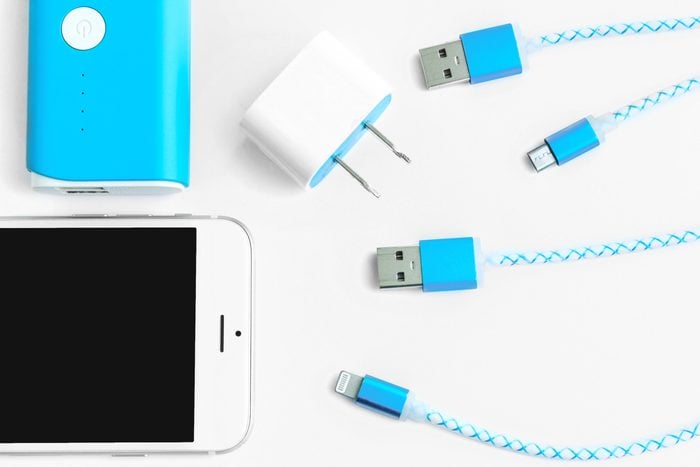
Packing batteries and battery chargers
Most of us can’t survive without our electronics. And heaven forbid we travel without such necessities as battery chargers and extension cords! But did you know that all battery packs face stringent travel guidelines? Per TSA guidelines, you can pack lithium-ion (rechargeable) batteries and portable batteries that contain lithium-ion only in carry-on baggage. But stick to batteries with no more than 100 watt hours per battery. With airline approval, you can bring two larger spare batteries—up to 160 watt hours per battery.

Carrying liquids
All air travelers must follow the TSA 3-1-1 rule for carry-on baggage. It states that liquids, gels and aerosols are limited to 3.4 ounces or less and must be placed in a single quart-size bag—one bag per passenger. There is an exception for hand sanitizer, which has a temporary 12-ounce limit because of the ongoing pandemic.
TSA officers notice when you try to skirt the rules, and this can trigger a bag search. One common mistake during the summer is bringing a super-size sunscreen to the checkpoint. That can be a costly mistake when a TSA agent confiscates it. So either pack it in your checked luggage or bring a travel-size sunscreen on the plane.
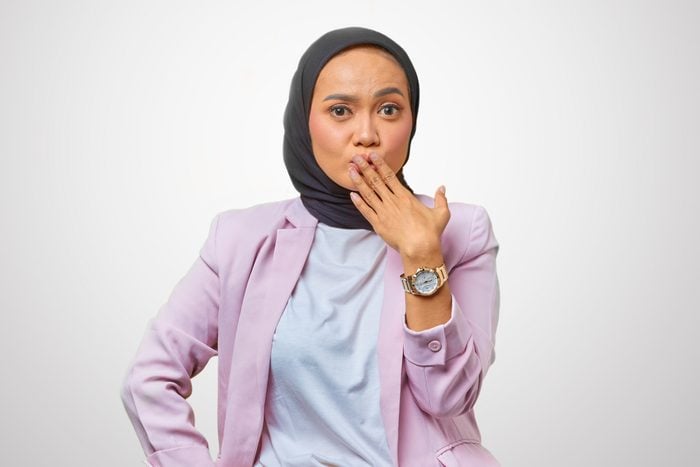
Talking about bad things
When experts warn against talking about “bad things,” they’re not referring to breakups. They’re talking about bombs and firearms. Discussing these items will absolutely get you pulled off to the side. Even asking the TSA agents about weapons—inquiring about which are allowed on a plane or why you can’t bring your gun—will get you questioned. In fact, you can get arrested for joking about bombs while in line. Pro tip: Keep quiet. Silence is definitely golden in regard to this topic.
Additional reporting by Danielle Braff.
Sources:
- Mike Boyd, president and CEO of Boyd Group International
- Jeffrey Price, security trainer for the American Association of Airport Executives and professor of airport management at the Metropolitan State University of Denver
- Richard Rozins, former TSA agent
- Sahara Rose De Vore, wellness travel coach, consultant and frequent traveler
- Transportation Security Administration: “What Can I Bring?”
- Transportation Security Administration: “TSA introduces latest aviation security technologies in place at Las Vegas McCarran International Airport’s Innovation Checkpoint”
- Congress: “H.R.5357 – Unruly Passenger Restraint Review Act”
- Federal Aviation Administration: “Unruly Passengers”
- Federal Aviation Administration: “2021 Unruly Passenger Data”
- Transportation Security Administration: “AskTSA: What to Expect During a Hair Pat-Down”
